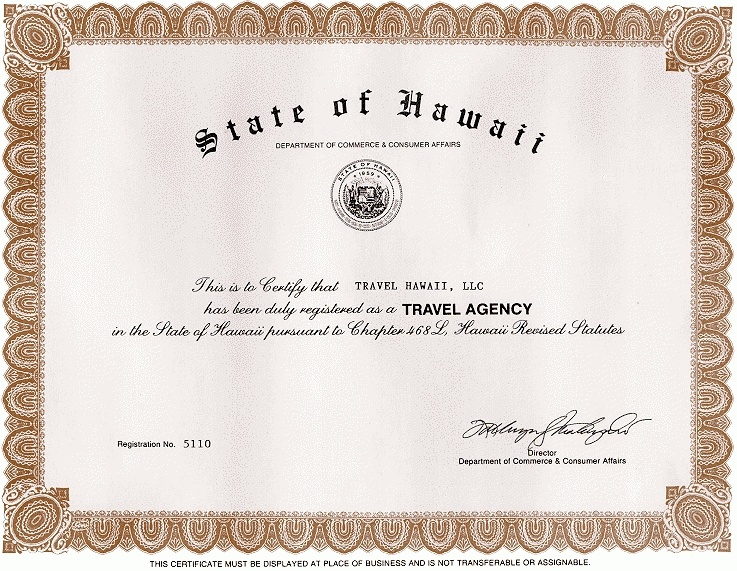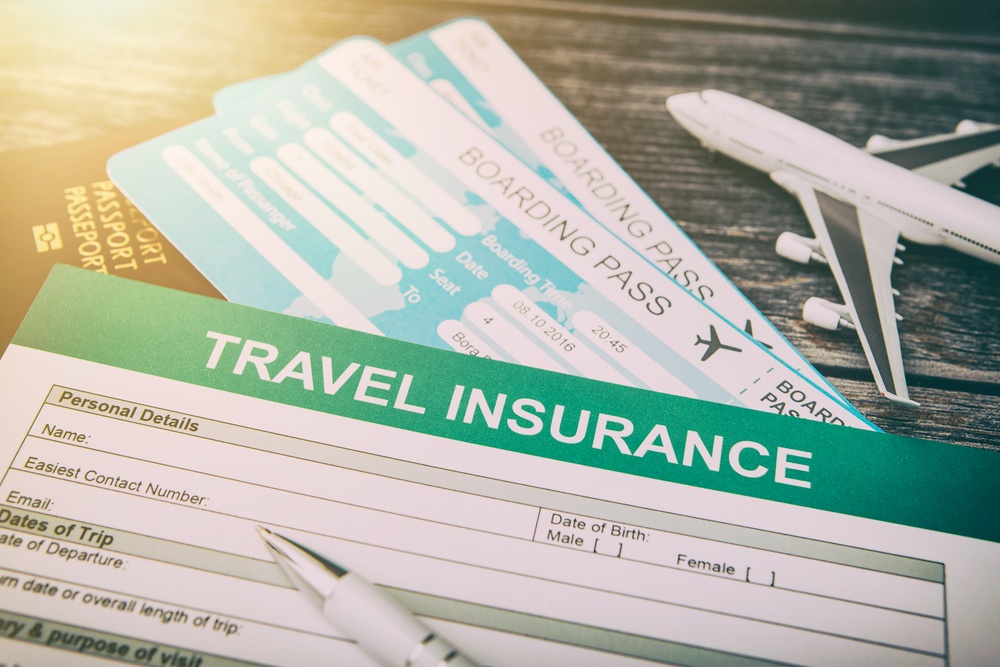How to Become a Travel Agent?

Do you have a penchant for traveling the globe? Then you might just be able to turn that lifelong passion into an income-generating career. With more and more people allocating a part of their salaries to travel, agencies that offer travel services are booming now more than ever. So if you’ve got an above average knowledge on the what’s and where’s around the world, then you might just have a potential career in travel.
So, how exactly do you go about becoming a travel agent? What do you need and how do you do it? Here’s a definitive guide to help you get started on your brand new journey.
What Do Travel Agents Do?
We’re all pretty familiar with travel agencies and agents. They’re the guys we approach if we want to streamline the process of setting up an entire travel experience. But there’s much more to the travel agent job than most of us understand. So before you dive into that new endeavor, it’s important that you understand some of the duties you’re expected to fulfill
 .
.
- Arrange travel plans for business and leisure trips – We already pretty much knew that. Your most basic function as a travel agent would be to create the entire travel plan for your clients – from their accommodations to their car rentals, restaurant reservations, attraction tickets and everything in between.

- Determine the ideal specifics based on your clients’ preferences and budget – How much is this family of four willing to spend on their Euro-trip? And what family-friendly attractions and activities can you recommend that you think they’d really enjoy? It’s imperative that you ‘profile’ your clients and make the right suggestions to meet their specific expectations. For example, you wouldn’t book a romantic restaurant reservation for a newlywed couple traveling alone with their 3-month old baby.
- Set schedules and dates – This has to be one of the trickiest parts of planning someone else’s travel experience. Some people might not be too keen on keeping schedules. And because certain services – like flights and tourist attractions – work on strict timetables, it’s imperative that you’re able to come up with a comfortable travel schedule for your clients. Something they can follow effortlessly without compromising the quantity and quality of the attractions they’re able to enjoy.
- Provide specific details on attractions, cultures, and other pertinent details – As a travel agent, it’s your duty to make sure your clients have a full, comprehensive idea of what they should expect when they arrive at their destination. Aside from giving them a clear account of the attractions and activities, they’re scheduled to experience, it’s imperative that you also give them a run-down of the culture of their destination.

Certain locations follow strict practices that coincide with their customs and traditions. Informing your clients of these statutes should help prevent them from doing anything that could insult locals or worse.
- Anticipate weather conditions and make the necessary contingency plans – Something that you might overlook is the aspect of weather. Outdoor trips to natural attractions or even theme parks can be weighed down by weather changes, and you need to be prepared for those chances.

Before you go through with a plan, make sure you check the anticipated weather situation for those dates. If there’s a chance of rain, you need to make sure you’ve scheduled a contingency plan to keep your clients’ schedules packed despite the change of weather.
Basic Requirements to Become a Travel Agent
Anyone can become a travel agent as long as they have a high school diploma. In the United States, and most other countries, travel agents aren’t required to have any sort of formal education aside from their high school diploma. So even if you’re neck deep in your current career, there’s no need to retrace your steps and head back to college.
But before you dive in, it’s worth considering that there are a lot of travel agencies out there. And that means that travel agents will do whatever it takes to get ahead of their competition. So some agents will undergo further education to receive travel-related degrees or certificates in tourism courses.

Of course, these are absolutely optional. But it doesn’t hurt to have a few extra credentials under your belt. Presenting these qualifications to your clients will make them feel more confident in your ability to put together a seamless travel experience, thus giving you leverage over competitors in the industry.
Services like The Travel Institute offer industry-recognized certifications across a broad selection of specializations, making you more efficient as a travel agent not only for your clients but for your employer or employees. Their courses are available as online modules or print resources sent straight to your doorstep.
If you want to get started off as a travel agent, they also have starter kits that offer a world’s worth of information that may be valuable in helping you acquire the necessary knowledge to better adapt the role of the travel agent.
Do Travel Agents Need a License?
Across most states and most countries, governments do not require travel agents to acquire any sort of licensing in order to operate, aside from the traditional business permit. However, in the US, there are 6 specific states that obligate each travel agent to register before they can sell any sort of travel services.
These include:
- California
- Florida
- Hawaii
- Iowa
- Nevada
- Washington D.C.

Regulations vary from state to state, and even some states not listed here have specific statutes that need to be followed in order to legally provide travel services. In essence, however, if you plan to operate in any of the following states, it’s imperative that you pay the associated fees and submit the necessary documents in order to become a government registered travel agent.
Travel Agency Employee or Self-Starter?
One of the biggest questions you’ll ask during the process of becoming a travel agent is whether you should start off as an employee for an already-established travel agency or if you’d be better off trying your hand at it on your own. Both avenues come with their pros and cons.
Working for an Established Travel Agency

Pros:
- Thick client base gives you lots of experience and potential commissions right off the bat
- Receive instruction and advice from more experienced agents in the business
- No need to figure out the nuances of starting a business on your own
- Salaried job opportunities give you a steady stream on income similar to any other traditional job
- Learn the ropes of being a travel agent with minimal risk
Cons:
- Limited career growth opportunities
- Employed travel agent sees an average annual income of only $35,000
- Need to compete with other applicants with better credentials
Establishing Your Own Travel Agency

Pros:
- You call the shots – from the branding to the packages you offer, and everything in between.
- Potential to rise through the ranks and adopt a more administrative role as your agency grows.
- Start off with an intimate environment where you can learn the ropes and discover your own preferences as an agent.
- Potential to work from home.
- Provide clients with a more customized, personalized experience since you’ll only be working with a few clients during the start of the endeavor.
Cons:
- Quite a lot of capital expense involved – even for an online service.
- If it’s a very small enterprise, you’ll have to oversee everything including non-core functions.
- Slow start – expect that you won’t be handling a lot of clients to start with.
Nature of Business – Online or Brick-and-Mortar?
These days, there are countless online travel agencies that don’t have physical offices, providing services strictly from a virtual platform. If you’ve decided that you want to start your own travel agency, you will have to confront the issue of whether to start off as an online service or to open up an office where clients can walk in and consult you.
The main reason why people choose online travel agencies is that it lets them work from home. Being able to stay in your comfort zone while still earning a profit can be a very attractive opportunity. But there are challenges.

With an online service, you risk visibility. Keep in mind that even brick-and-mortar services will have a website or social media page tied into their brand. So well-established travel agencies will have more prominence online compared to an up-and-comer.
If you think you’d be better off with a physical travel agency office, you need to consider the cost. A brick-and-mortar will be a pretty big expense if you factor together with the rent, interior design, and the other essentials you’ll need like computers.
On the upside, opening up a travel office, even if it’s a small one, gives you access to an immediate audience within your vicinity. So if you’ve found a prime location in your area where there aren’t a lot of other agencies but a wealth of potential clients, then you might not have to worry about a limited client base or reach.
Errors and Omissions Insurance
Another thing you should consider before starting a travel agency business is errors and omissions insurance. This unique kind of coverage protects your business from losses, especially if there were minor mistakes in the travel package you issued or oversights that caused a change in the experience promised to your client.

For instance, if you booked a business class flight for your client and they missed their departure because of a mistake you made, then you are responsible for getting them a new flight and paying for that added expense. Unfortunately, business class seats can easily cost upwards of $6,000, so what’s a budding travel agent to do?
Errors and omissions insurance coverage protects you from similar experiences, allowing you to file a claim in case of these types of incidents. Essentially, it keeps you from having to pay for fees and penalties that might be your fault during your clients’ travel.
Are errors and omissions insurance coverage necessary? Some states require travel agents to have at least partial coverage while others require full coverage. Is errors and omissions insurance coverage expensive? Well, yes. It’s going to make up a pretty big chunk of the initial cost you spend to get your agency up and running. But it will save you ten-fold its cost down the line.
Finding Your Travel Niche
Travel agents know that it isn’t a small world after all. The globe can be a really big place, and offering travel experiences across the world might seem like a great angle, but you’ll really just end up biting off more than you can chew.
When it comes to putting up a travel business, one of the things you need to do is establish your chosen travel niche. Are you interested in helping newlyweds plan their honeymoon getaway? Are you more inclined to assist families in achieving the best summer to remember? Or are you more of a solo-traveler consultant, giving individuals with a bad case of wanderlust the dirty deets on where to go for their next big solo adventure?

Find a niche and stick to it. It also helps to narrow down your travel destination to just a few countries or a specific region so you can provide more personalized experiences. Working within a small area or just a group of countries will make it easier for you to familiarize yourself with what they offer. In effect, this helps you provide clients with authentic recommendations that won’t disappoint.
What niches can you try? It really depends on what you are interested in, in a geographic or cultural sense. For instance, some travel agents specialize in African safaris, able to provide clients with extensive experiences in those regions in the blink of an eye. Others choose to specialize in budget travel through Southeast Asia which is a pretty big market these days.
Consider what you’re most interested in and learn everything you need to know about your chosen localities or destinations. The more you know about the actual experience, the more trustworthy you’ll become to your client base.